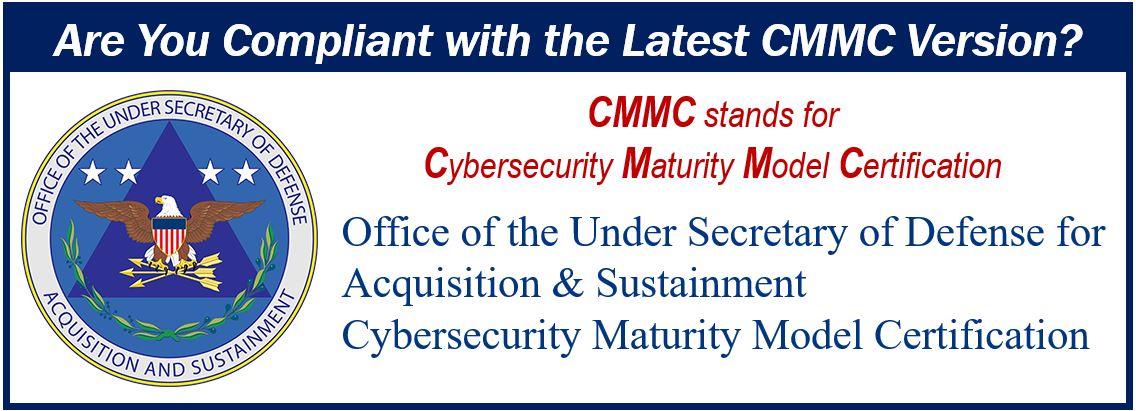If you’re a Department of Defense Contractor, you should be well aware of the cybersecurity regulations recently been put in place. The Defense Federal Acquisition Regulation Supplement cybersecurity clauses require a more unified cybersecurity system.
Since these DFARS cyber clauses were introduced, contractors have been scrambling to improve their processes and comply with these regulations. Some contractors have been able to meet these new standards independently, while others have outsourced their compliance matters to third-parties.

Either way, only a small portion of people have done this, and many have not met these standards. Some had even stated they were compliant when they had done nothing to improve their processes.
Because of this, the Department of Defense released the Cybersecurity Maturity Model Certification, which ensures compliance with DFARS. The first version was released in January 2020. Here is everything you need to know to ensure you are compliant with the latest version.
The CMMC Model
The CMMC model consists of different levels of cybersecurity maturity, from basic hygiene to advanced. Basically, it takes all the different requirements for cybersecurity control standards and combines them under one model. Aside from the control standards, it measures the maturity of your cybersecurity processes. This serves as a way for the Department of Defense to determine if a contractor is sufficiently secure for contract work.
What That Means for You
The biggest question that people have about this is how it will affect them as contractors. In short, this means that the Department of Defense will want to see that you have a CMMC certification before working with you. This proves that you are compliant with the CMMC model and capable of protecting information given to you by the Department of Defense.
CMMC Certifications and Audits
The Department of Defense uses third-party contractors to perform tests to verify that someone meets a certain level on the CMMC model certification. You can learn more about certification levels, and the auditing process on the CMMC frequently asked questions page.
Preparing for an Audit
As already mentioned, to ensure CMMC compliance, you must meet all of the basic cybersecurity controls identified in the model. So start by figuring out what level you wish to achieve, then begin implementing the strategies you need to earn that certification.
If you have implemented all of the controls required for that level, you will have no problems passing your audit. However, if you have not already implemented the controls for the level you want, you will need to make the changes yourself or hire another company to help you improve your cybersecurity.
The Importance of Passing Your First Audit
For most companies and private contractors, working for the Department of Defense makes up a substantial portion of your revenue, meaning that you will want to pass the first audit so you can start or continue working on their contracts again right away. After all, you will not be able to take any more Department of Defense contract work until you have passed an audit.
If you don’t pass your first audit, you could have to wait for an extended period of time because you will need to implement the required changes and wait for another appointment amid the backlog of audits. Therefore, it is highly recommended that you do everything in your power to pass your first audit.
If you plan on doing contract work for the Department of Defense, you will have to ensure that you comply with the CMMC model. That means getting certified for the level of cybersecurity you need. To do this, you will need to prepare for and pass an audit. By following the information in this guide, you will be well on your way to becoming certified and understanding the CMMC model.
Interesting related article: “What is Compliance?”

